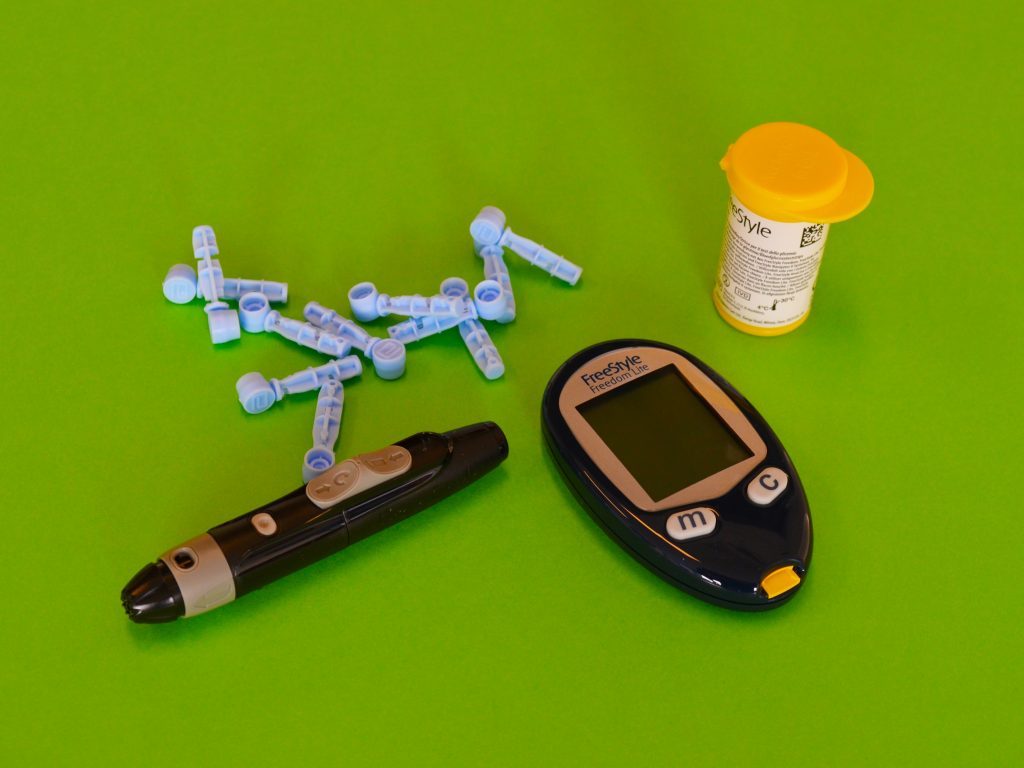How Exercise Helps the Management of Diabetes
Posted on August 6th, 2024 by Andries Lodder
Introduction
Diabetes Mellitus is a condition whereby your blood glucose (blood sugar) levels are chronically too high. This may occur when either your body does not produce insulin (Type I Diabetes Mellitus), or when your cells are no longer sensitive to insulin, or you do not produce enough insulin (Type II Diabetes Mellitus).
Insulin is responsible for stimulating the cells in your body to take up glucose from the blood, thus regulating blood glucose levels. Therefore, when there is not sufficient insulin, or when your cells are no longer sensitive to insulin, it causes an increase in blood glucose concentrations which can give rise to a number of symptoms.
Managing diabetes involves a comprehensive approach that includes diet, medication, and importantly, regular physical activity. Exercise plays a crucial role in controlling blood sugar levels and improving overall health for individuals with diabetes.
Here are some ways exercise helps with diabetes:
- Improves Insulin Sensitivity:
Regular physical activity makes the body’s cells more responsive to insulin, allowing glucose to be used more effectively for energy. This helps in lowering blood sugar levels.
- Helps Control Weight:
Exercise helps in burning calories and reducing body fat, which is crucial as obesity is a major risk factor for Type 2 diabetes. Maintaining a healthy weight can improve insulin sensitivity and glucose control.
- Lowers Blood Sugar Levels:
Physical activity helps muscles absorb glucose, even without insulin. This effect can last for several hours after exercising, which aids in keeping blood sugar levels in check.
- Improves Cardiovascular Health:
Diabetes increases the risk of cardiovascular diseases. Regular exercise strengthens the heart and improves circulation, reducing the risk of heart disease and stroke.
- Boosts Mental Health:
Exercise reduces stress, anxiety, and depression, which can be higher in people with diabetes. Reduced stress levels can help in better blood sugar control.
- Enhances Sleep Quality:
Good sleep is important for diabetes management. Regular physical activity can improve sleep patterns, contributing to overall health and well-being.
- Improves Cholesterol and Blood Pressure:
Regular exercise can help lower bad cholesterol (LDL) and raise good cholesterol (HDL), as well as reduce blood pressure, which are important factors in managing diabetes and reducing cardiovascular risks.
Types of Exercise Recommended:
Aerobic Exercise: Activities like walking, jogging, swimming, and cycling improve cardiovascular health and help control blood sugar levels.
Strength Training: Weight lifting or resistance exercises improve muscle mass and insulin sensitivity.
Exercise Tips for People with Diabetes:
Consult Healthcare Provider and Biokineticist: Before starting any exercise program, it’s important to consult a healthcare provider, especially if there are other health concerns. Seeking a Biokineticist’s professional advice can ensure you establish an exercise program that is suitable to your needs and abilities.
Monitor Blood Sugar Levels: Regularly check blood sugar levels before, during, and after exercise to understand how your body responds to physical activity and to prevent your blood glucose levels from dropping too low.
Stay Hydrated: Dehydration can affect blood sugar levels, so it’s important to drink plenty of water.
Wear Proper Footwear: Proper shoes help prevent foot injuries, which can be a concern for people with diabetes.
Carry Carbohydrates: In case of low blood sugar (hypoglycemia), carry a quick source of carbohydrates like glucose tablets or juice to ensure you can safely manage your blood glucose levels.
Conclusion:
Incorporating regular exercise into your diabetes management plan can lead to significant improvements in your health and well-being. Embrace an active lifestyle and experience the vast number of benefits it brings to managing diabetes. Please feel free to contact us should you have any questions!
Stay active, stay healthy!
Tweet
